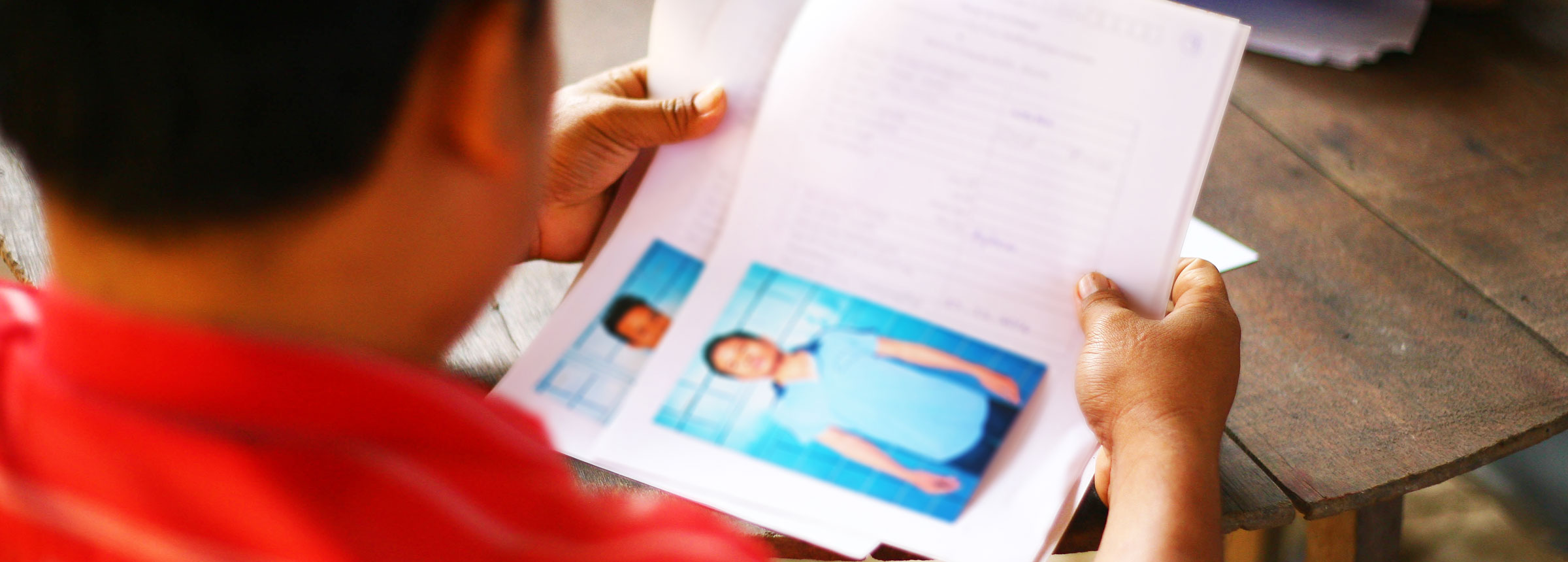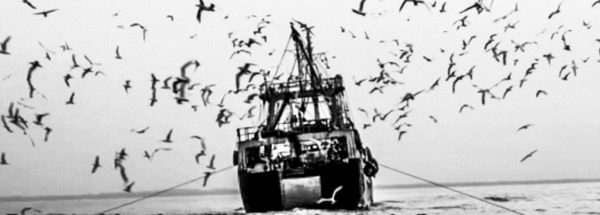
‘We have our difficulties, but we can overcome them.’
The Giant Ocean case was one of the rare good news stories in the world of trafficking prosecutions. Here’s how one survivor is moving on.
January is National Human Trafficking Awareness Month, and January 11, 2020, is National Human Trafficking Awareness Day. This is the story of one counter-trafficking victim who survived almost unimaginable conditions to build a new life for himself. It is a story of endurance, courage and hope.
When Yim Bunthen, of Phnom Penh, Cambodia, learned that the Giant Ocean Seafood Corporation was looking for workers, he didn’t take the job right away. The money sounded good, but he wanted to make sure the company was legitimate. Only when he learned it had a government license did he take the job. Bunthen left Cambodia in June 2014, assuming he would be fishing in Southeast Asian waters. Instead, he was flown through Dubai to Capetown, South Africa, and put on a fishing vessel there. It was an early sign that the job would not be as advertised. There would be many more.
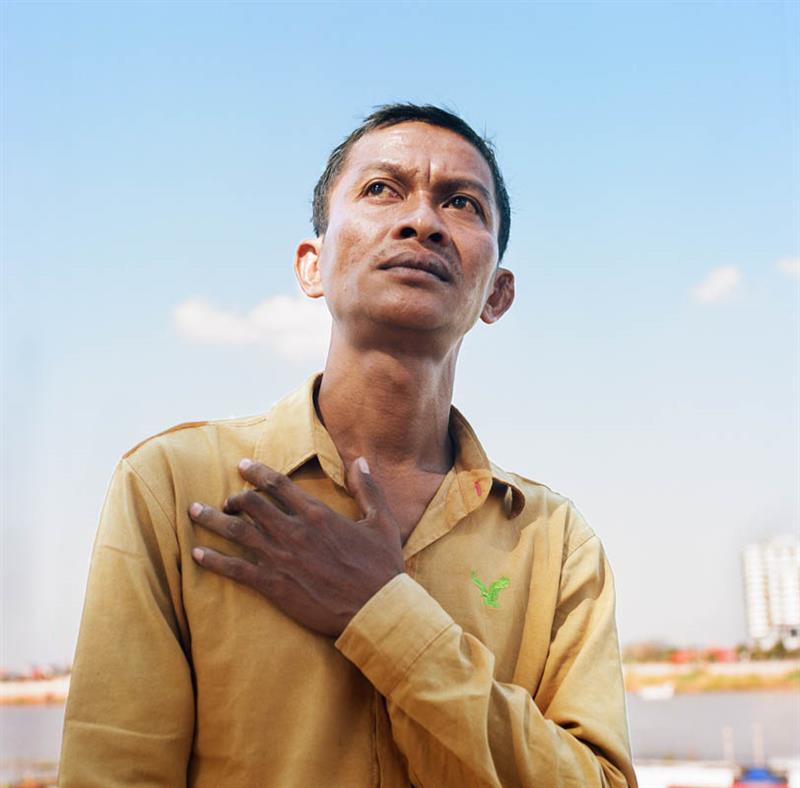
“Newcomers were sick their first 15 days,” Bunthen said in a Winrock video about labor trafficking aboard the vessel. “They would vomit and try to rest, but the captain kicked them like animals. He threatened them to work. If they refused, he threw them to the sharks. I was bit on the hand by a shark. If a fisherman could cut off a shark’s fin, he would receive extra money.”
Bunthen’s left hand is a permanent record of the horrors he suffered in the one year and eight months he spent aboard the fishing vessel. “It took about three months to heal and it’s never been the same,” says Bunthen, holding up his injured finger to show a visitor.
“We worked from 16 to 18 to 20 hours a day. We didn’t have enough sleep … Another thing is that we got beaten up. When we were sleepy during the working hours, we were beaten.”
And then there was the lack of payment. In the 20 months Bunthen worked for Giant Ocean he was paid only $840 — and that was during the first three months. After that, nothing — no recompense at all for working seven days a week, 16 or more hours a day, often in dangerous conditions.
The Escape
One day his ship came ashore, so Bunthen and other trafficked men took a chance and ran away, seeking safety at a police station. Twenty days after he escaped, a partner organization of Winrock’s Cambodia Countering Trafficking-in-Persons program (CTIP), funded by USAID, returned Bunthen from South Africa to Cambodia. There, the CTIP program provided financial assistance, counseling and medical treatment.
CTIP also provided Bunthen with a motorcycle and with job training. He learned how to manufacture laundry detergent and was given the equipment he needed to do it. It’s a trade he’s still plying three years later, one that has enabled him to earn a living without leaving the country.
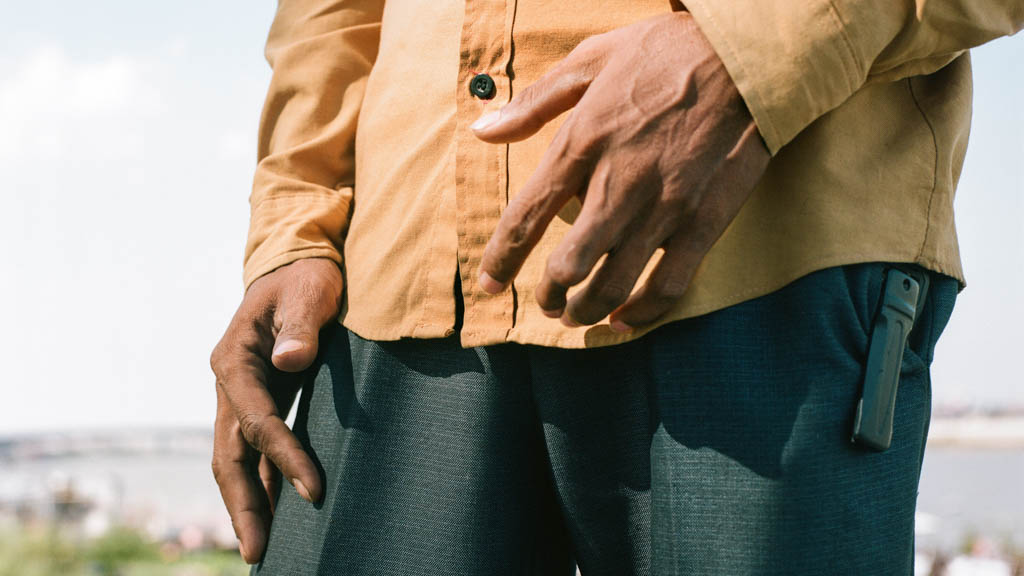
When Bunthen arrived back in Cambodia he also met with Sokchar Mom, director of Legal Support for Children and Women (LSCW), another Winrock partner. Mom supported Bunthen in deciding to testify about Giant Ocean’s deceptive recruiting and harsh treatment.
“At first I was afraid,” Bunthen explains. “Having returned from the fishing ship with that experience, I was still thinking of the time when I didn’t have enough sleep or food to eat. But LSCW explained to me what was going to happen and how important my testimony was.” Now, Bunthen is proud of testifying. “I would do it again,” he says. “I don’t care how many times.”
The Prosecution
The trial and its outcome became one of the rare good news stories in the world of human trafficking prosecutions. It is documented in the video, which has been viewed thousands of times and has garnered international press coverage. Information provided by another Giant Ocean case victim provided evidence linking Giant Ocean with Step Up Marine, a notorious Singaporean labor recruiting company. Also, the bank account numbers of the Giant Ocean traffickers were supplied to Winrock partner Liberty Shared for a monitoring system that provides information to banks to evaluate the risks of clients associated with trafficking-in-persons cases, says Winrock’s human trafficking expert Sara Piazzano.
But as the video makes clear and Mom confirms, the conviction wasn’t easy. LSCW first received complaints about Giant Ocean in 2011 and reported them to Cambodia’s anti-trafficking police, who referred the case to court four times in four years before the court finally issued a warrant for the arrest of Giant Ocean recruiter Lin Li Chang in 2013.
By then, company officials had destroyed all documents and left the country. Even Lin Li Chang had slipped away to Taiwan, where Giant Ocean vessels were registered. (As with other labor trafficking cases, there is a legal tangle of recruiting agencies and transnational companies that make it difficult to prosecute the top officials.) Chang was only brought to justice because a sharp-eyed observer saw her in another part of Cambodia (she had returned with a new name and passport) and Mom helped police corroborate her whereabouts.
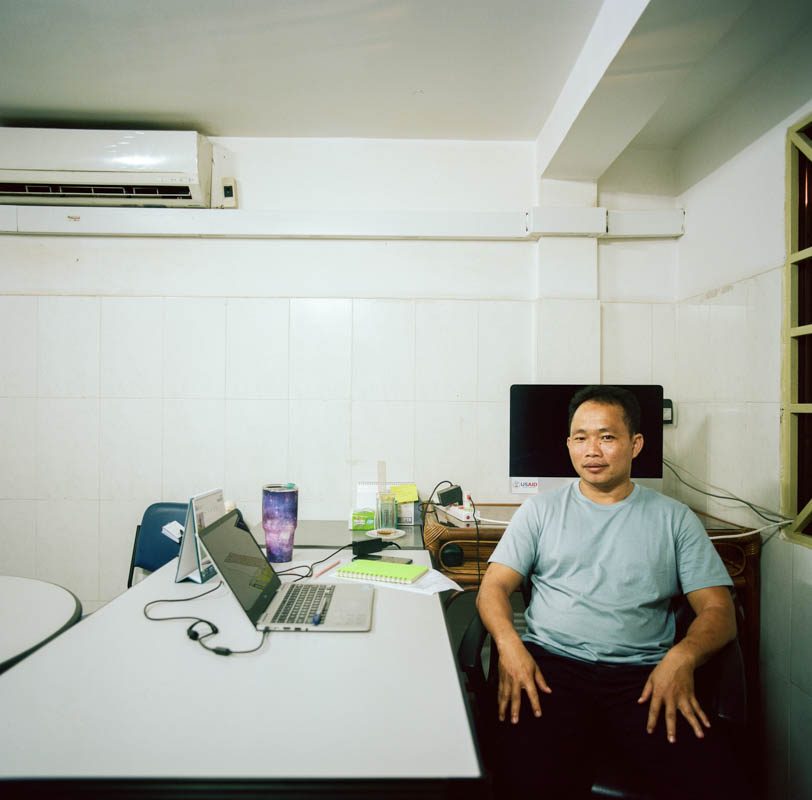
Chang has served six years of her 10-year sentence, Mom says, so it won’t be long before she is free again. Also, the Giant Ocean case is tied up in appeal, which means there have been no settlement funds for the 170 victims who filed complaints. “The conviction is there,” Mom says, “but from the point of view of the victims, what they need is money, their unpaid salary.”
Bunthen asked for $5,000, was told he’d be granted $3,500 — but has received nothing. If he did receive what he is owed, he would buy a house and run a laundry detergent manufacturing business out of it, he says. In the meantime, he is saving up to buy a tuk-tuk, which would give him a way to deliver the detergent he manufactures and also pick up some paying passengers on the side using Pass App, the Cambodian equivalent of Uber or Lyft.
A New Life
In the years since he returned from South Africa, Bunthen has become active in the survivor’s movement in Cambodia. Winrock has helped him attend several survivors’ forums, most recently the Freedom from Slavery Forum in Bangkok, where he joined more than 80 other participants from Asia, Europe, Latin America, Australia and the U.S.
“It was a very good opportunity for Yim Bunthen as an active survivor to participate in support of Winrock,” says CTIP’s Vuthy Un. “It was a good chance to share his story and experiences of human trafficking.” Two of the actions Bunthen proposed made it into the forum’s statement, Un says — developing a referral mechanism to promote legal justice for trafficking survivors, especially those from the fishing industry, and strengthening the collaboration among civil society organizations to avoid overlapping activities.
Meanwhile, Bunthen works hard to make a life for himself in Cambodia. He stays in touch with fellow survivors, he dreams his dreams, and he helps others avoid what happened to him. “I tell them to be very, very careful. I tell them, ‘Don’t easily believe in any promise.’”
Bunthen draws strength from those months on the fishing vessel; he tells himself that if he can survive that, he can survive anything. And he is thankful for the assistance he’s received from the Cambodia Countering Trafficking-in-Persons program. “It’s helped me to feel my life again, to regain my confidence,” he says. “We have our difficulties, but we can overcome them.”
To read more on Winrock’s counter-trafficking work in Cambodia click here, here, here and here.
Related Projects
